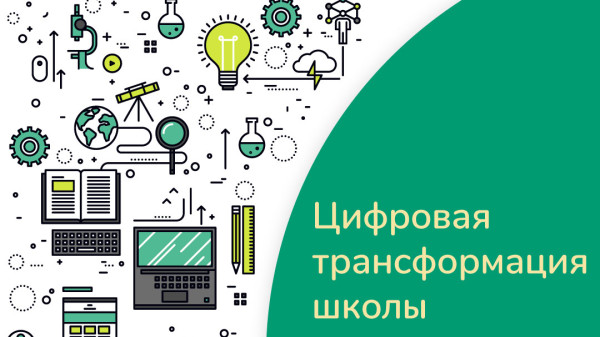
https://doi.org/10.29003/m2061.sudak.ns2021-17/84-85
Стремительный «захват» цифровизацией сфер образования, труда, досуга и пр. все более ускоряет превращение цифровых технологий в новую цифровую среду обитания человека: его деятельности и общения, социальных и социокультурных отношений. Однако, если овладение человечеством предметной, социальной и социокультурной сред, включая опыт рисков ее освоения, происходило постепенно, и этот опыт, накапливаемый тысячелетиями, естественным образом усваивается ребенком в онтогенезе, то в отношении цифровой среды у взрослых нет опыта предупреждения опасностей погружения в нее ребенка. В настоящее время имеются лишь гигиенические требования, ориентированные на профилактику физического и психического утомления, нарушений осанки, зрения и пр. Однако опасности связаны и с личностным развитием, когнитивной и эмоциональной сферой детей. Это обусловлено тем, что цифровая среда вводит детей в виртуальное пространство, неумелое погружение в которое, может провоцировать нарушение границ Я, коммуникативные трудности, беспомощность во взаимодействии с предметным миром и социумом, негативную трансформацию ценностно-смысловой и эмоциональной сферы, доминирование клиппового и NET—мышления, что чревато снижением уровня системного мышления, податливостью манипуляциям, появлением созависимости интернет и личности. Обозначим некоторые наиболее важные требования к освоению детьми цифровой среды: - Включая как минимум период дошкольного детства взаимодействие с цифровой средой может осуществляться только вместе со взрослыми, которые контролируют не только выполнение гигиенических требований, но и возрастную и социокультурную релевантность информации, осуществляя это в диалоге с ребенком. - Взаимодействие старших детей с цифровой средой необходимо сопровождать специальной работой по психологической и личностной подготовке подростка, которая позволит ему быть экспертом возможных лично для него рисков цифрового мира и управлять этими рисками на основе самопонимания и рефлексии своих отношений с виртуальным пространством. - Развивающее влияние цифровой среды определяется идеями Л.С. Выготского - важнейшим фактором воспитания является опыт самого ребенка, приобретаемый им в социальной среде, «организатором и управителем» которой является педагог, являясь одновременно частью этой среды, носителем системы знаний, ценностей и пр. Иначе говоря, цифровой мир может стать развивающим, если взрослый актуализирует интерес к нему как к средству, отвечающему потребности детей к саморазвитию, посредством организации взаимодействия всех сред, в которых существует ребенок.
I n t e r n a t i o n a l C o n g r e s s
“Neuroscience for Medicine and Psychology”
Sudak, Crimea, Russia, May 30-June 10, 2021
85
CHILDREN IN THE WORLD OF «DIGIT» Bolshunova Natalya Ya.
Federal State Budgetary Educational Institution of Higher Education "Novosibirsk State Pedagogical University", Novosibirsk, Russia, nat_bolshunova@mail.ru The rapid "capture" of digitalization in the fields of education, labor, leisure, etc., is increasingly accelerating the transformation of digital technologies into a new digital environment for human habitation: their activities and communication, social and socio-cultural relations. However, if humanity's mastery of the subject, social and socio-cultural environment, including the experience of the risks of its development, occurred gradually, and this experience, accumulated over thousands of years, is naturally absorbed by the child in ontogenesis, then with regard to the digital environment, adults have no experience in preventing the dangers of immersion in it. Currently, there are only hygienic requirements focused on the prevention of physical and mental fatigue, impaired posture, vision, etc. However, the dangers are also associated with personal development, cognitive and emotional spheres of children. This is due to the fact that the digital environment introduces children into the virtual space, inept immersion into which can provoke violation of the boundaries of the Self, communication difficulties, helplessness in interaction with the objective world and society, negative transformation of the value-semantic and emotional sphere, loss of corporeality, dominance of clip and NET thinking, which is fraught with a decrease in the level of systemic thinking, compliance of manipulations, the emergence of codependency of the Internet and personality. Let's outline some of the most important requirements for children to overpower the digital environment. - Including at least the period of preschool childhood, interaction with the digital environment can only be carried out together with adults who control not only the implementation of hygiene requirements, but also the age and socio-cultural relevance of the information that the child learns, doing this in a dialogue with the child. - The interaction of older children with the digital environment must be accompanied by special work on the psychological and personal preparation of a teenager, which will allow him to be an expert of the risks of the digital world possible for him personally and to manage these risks based on self-understanding and reflection on his relationship with the virtual space. - The developing influence of the digital environment is determined by the ideas of L.S. Vygotsky, who believed that the most important factor in upbringing is the experience of the child himself, acquired by him in a social environment, the "organizer and manager" of which is the teacher, being at the same time a part of this environment, the bearer of a system of knowledge, values, etc. In other words, the digital world can become developmental if the teacher (adult) can actualize interest in it as a means that meets the needs of children for self-development by organizing the interaction of all environments in which the child exists.
Нейронаука для медицины и психологии: XVII Международный междисциплинарный конгресс. Судак, Крым, Россия; 30 мая – 10 июня 2021 г.: Труды Конгресса / Под ред. Е.В. Лосевой, А.В. Крючковой, Н.А. Логиновой. – Москва: МАКС Пресс, 2021. – 456 с.

